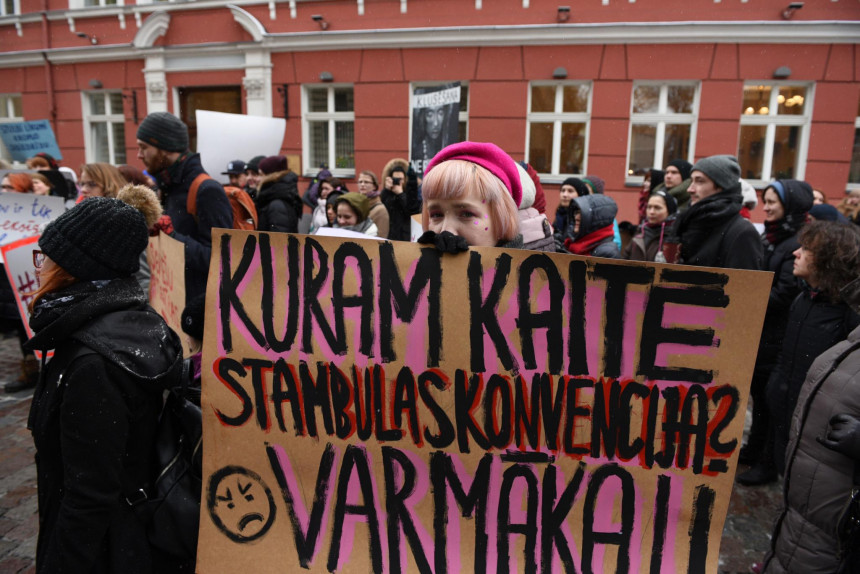The Constitutional Court has not reduced the opposition to the Istanbul Convention

The Constitutional Court has deprived the conservative political forces of the Saeima of one of the arguments that was used in the fight against the ratification of the Istanbul Convention. The Court has acknowledged that what is written in the Convention is not in conflict with the basic law of the state - the Constitution. Opponents of the Convention are not convinced, however, and they point out that this is not a court judgment having the force of law - it is merely an opinion. However, political discussions on the ratification of the convention could once again be on the agenda of the Saeima.
Judge of the Constitutional Court Daiga Rezevska also admits that this judgment does not oblige the Saeima to ratify the Istanbul Convention. The judge points out that ratification of the convention is a matter for the legislator.
New Unity (Jaunā Vienotība) and Development/For! (Attīstībai/Par!), who asked the Constitutional Court to assess the compliance of the Istanbul Convention with the Constitution, will discuss it first, but it is assumed that it will be decided to move the convention for ratification.
Anda Čakša, representing New Unity, expressed satisfaction with the judgment of the Constitutional Court, as the signing of this convention in Latvia has lasted for four years. According to her, the verdict on the implementation of special measures to protect women from violence being in accordance with the national Constitution has removed the last obstacle and argument that would prevent the ratification of the convention by the parliament.
The MP emphasized that the situation with violence in Latvia is serious, therefore an important tool will be introduced to help protect women and children from violence. "The Istanbul Convention gives new strength to move forward," she said.
New Conservative Party (Jaunā konservatīvā partija) will discuss the party's further action in the context of the Istanbul Convention, but so far its position has been clear - it cannot be ratified. In turn, the leaders of National Alliance (Nacionālā apvienība) have already announced that the judgment of the Constitutional Court is not binding on the Saeima.
Harmony (Saskaņa), whose members have differing views on the convention, will also be discussing the possibility of ratifying it. Boris Cilevičs, representing the political party, reminds that the ratification of the document is a matter of political rather than legal nature.
The parliamentarian himself tends to support the ratification of the convention.
"It is a matter of political rather than legal nature. There is nothing in the convention that cannot be ratified,”
says B. Cilevičs, adding that it is aimed at reducing domestic violence.
He acknowledged that conservative political forces and regimes are more cautious about ratification. He cited Turkey as an example, which has withdrawn from the Istanbul Convention this year because the regime has become more undemocratic.
Atis Zakatistovs, the head of the support group formed by independent MPs of the government of Krišjānis Kariņš, predicts that the convention will be ratified.
The MP reminds that regarding the Istanbul Convention, there is no consensus in the parliament on the extent of violence in Latvia and there are deeply problematic differences in views on natural gender and the social roles of the genders. There will be no solution to these issues, but it is also a question of the possibility of the recurrence of a constitutional crisis in a short period of time.
He therefore believes that the convention will be supported.
The Constitutional Court has concluded that the Cabinet of Ministers had the right to make a decision on signing the Istanbul Convention. Consequently, the Istanbul Convention has been signed in accordance with the requirements specified in the Vienna Convention and the Law on International Treaties of the Republic of Latvia.
The Court also concluded that the object and purpose of the Istanbul Convention is the elimination of violence against women and domestic violence, thus promoting gender equality. Consequently, all the obligations imposed on the Member States by the Istanbul Convention also apply only to the scope of the Istanbul Convention, according to its object and purpose.
